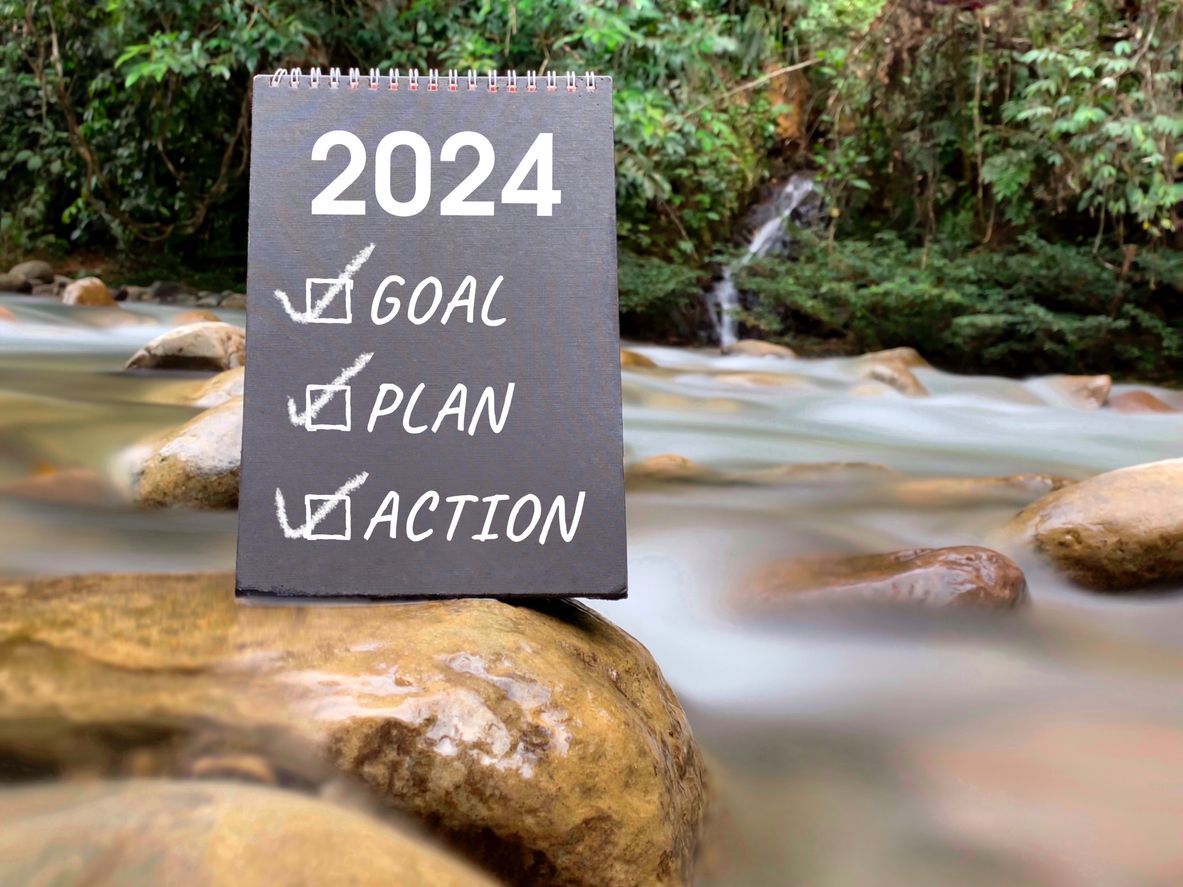Focusing on Your 2024 Goals
Cathie Leimbach • January 2, 2024

2024 has just arrived! May it be a Happy New Year full of achievement and fulfillment!
The first step in having a great year is to decide what will make it a great year for you. If you don’t have a destination – where you wish your life and work activities will take you this year, they you can’t map out a path to get there. If you haven’t yet set goals for this new year, then this week is the best time to determine a few 2024 goals with deadline dates.
Once you have some important measurable goals, it is important to hold yourself accountable to consistently take actions towards achieving them. Here are a few steps that will help you stay focused on these priorities.
- Review your goals daily to keep them top of mind.
- Set milestones indicating how much progress you wish to make each week or month.
- Review your progress weekly or monthly to see if you are meeting your milestones.
- When you meet a milestone, celebrate. Go out for a specialty coffee or go see a movie. For major milestones, you might go out-of-town for the weekend or treat yourself to dinner at a high end restaurant.
- When you miss a milestone, review the actions you have taken, what helped you make progress, what were your bottlenecks. Develop plan B that will enable you to make more progress in the coming week.
- If you are stumbling, get an accountability partner to encourage your success and help you stay on track. This could be a business colleague, friend, family member, or a professional coach.
- Keep taking the actions that yield progress.
- And, when each goal is achieved, celebrate!
Wishing you a year full of achievement and joy!
Most CEOs focus on strategy, systems, and talent. But the biggest driver of performance is already in place: managers. Manager behavior influences about 70% of team engagement and results. What happens in everyday conversations matters more than perks, pay, or policies. Managers either multiply energy or drain it. Clear, supportive managers raise performance. Avoiding, inconsistent managers quietly lower it. The good news? Small habits make a big difference: Clarifying expectations Giving timely feedback Addressing issues early Reinforcing priorities These moments add up. Instead of telling managers to “motivate people,” try asking: Where might expectations be unclear? Where is inconsistency allowed? What conversation is being avoided? When managers improve just a little, results improve a lot. 👉 Join our 60-minute Leadership Conversation to explore how everyday manager habits quietly shape engagement and results.

When engagement drops, many organizations reach for perks—rewards, programs, or incentives. These can create a short lift, but they rarely solve the real issue. Engagement starts with expectations. Most people want to do good work. What gets in the way isn’t motivation—it’s uncertainty. When priorities shift, roles feel unclear, or success means different things to different leaders, people disengage quietly. Leaders often don’t realize they’re contributing to this. Vague direction, inconsistent follow-through, or assuming “they already know” leaves teams guessing. Over time, guessing turns into frustration—and frustration turns into disengagement. Strong engagement cultures focus on leadership basics: Clear priorities Shared definitions of success Aligned expectations Consistent reinforcement When expectations are clear, people move with confidence. They take ownership, collaborate better, and stay engaged because they know where they’re headed. Perks can support engagement—but only after clarity is in place. 👉 Read our full article on Why Engagement Starts With Expectations to turn clarity into a real advantage.
